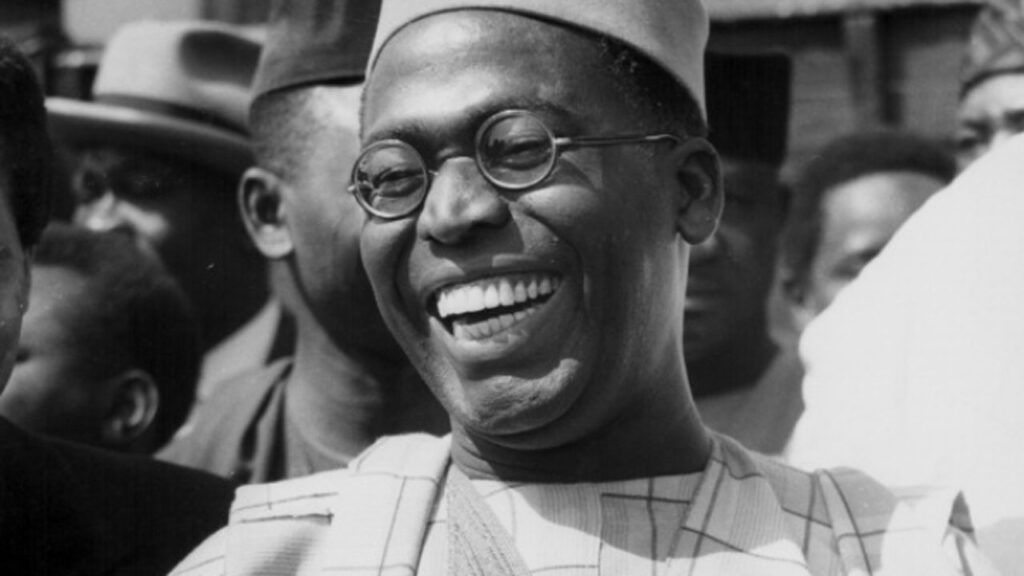
The book reviewer, Wale Adebanwi, a Professor at the University of Pennsylvania, Philadelphia, USA, said the book is about the issue of meritocracy.
“There is a reason why the issue of meritocracy is at the centre of this book,” he submitted.
” I have called the title of my review, ‘The Problem with Meritocracy,’ because, while the author’s life and the era that produced him have shown the value of meritocracy, the author’s advocacy in this book, that is, about ‘getting politics right to make Nigeria work,’ was produced by what those who have been running Nigeria for a few decades now see as ‘the problem with meritocracy.’
“In fact, for them, meritocracy is not merely a ‘problem,’ it is a ‘threat’ to their interests. And this, for me, is why this compact book is highly valuable not just because of the solutions it advances, but also in terms of its succinct but searing diagnosis of the Nigerian crisis.”
Adebanwi further asserted that the Adamolekun generation was a generation in which the overall social conditions were such that people could make excellent personal choices.He said they also had all the incentives needed to excel anywhere in the world.
“And importantly, competition was encouraged not only structurally among the regions, but also among the citizens themselves in order to ensure that the best were in charge of the critical instruments of the social order – including the universities and public service, two of the key areas of our national life that the author has studied closely for almost six decades.”
He agreed with the author that without federalist practices, strong institutions, and an excellent bureaucracy, even the best-intentioned individuals cannot make Nigeria work.
Addendum, closing remarks and deliverables:
I would like us to rise from this conference with the following low hanging fruits that the current administration can take as focal points:
Specifically, we should note the following observations from outside the service and I am persuaded that the authorities at the federal and sub-national
levels should not ignore them for us to make progress beyond the headlines:
Application of federal character principle and its implication on service delivery in Nigerian federal civil service.
The Nigerian federal civil service is the bedrock of Nigeria’s quest for socio-economic development.
However, over the years, service delivery and development have remained a huge challenge, a bad ulcer that thrives on medications applied to it.
There is a correlation between federal character principle and employees’ service delivery as well as poor attitude to work by bureaucrats.
To achieve efficient service delivery and better attitude to work by civil servants in the service, government should re-examine the impact of federal character provisions in the constitution with a Commission to enforce a constitutional provision.
There may be need to borrow a leaf from Marx Weber’s bureaucratic theory as regards recruitment based on merit, technical competency and qualification.
There may be need to re-examine the reliability and validity of the application of federal character principle or better be situated within grade levels 03-06 while recruitment into the senior officers cadre grade levels 07-17 and appointments should be strictly based on merit
The application of federal character has curiously affected quality of service delivery and advent of mediocrity in the public sector.
What is more…
The ‘Federal Republic of the Nigerian Army’ (Chris Ali, 2011) has also had some (unintended) consequences that have weakened some institutions of governance and therefore affected the civil service: politicisation, inefficiency and unbridled corruption.
The fact that we have three anti-corruption bodies, Code of Conduct Bureau/ Tribunal, ICPC and EFCC that haven’t prevented corruption in the country is an indication that the source of corruption is also polluted.
There is a challenge of managing public finance and procurement in Nigeria despite adoption of certain policies through legislations such as Public Procurement Act, Fiscal Responsibility Act, Freedom of Information Act and even presence of Financial Instructions as an integral part of Public Service
Rules and Regulations
A current prosecution of immediate past Accountant-General of the Federation on breaches of the laws of public finance and confiscation of some property linked to him in his state capital is part of indications that our public finance management system has been compromised.
There is also some nexus between declining standard in education and low standard of service delivery as some officers in the directorate cadre and even permanent secretary cadre have been reported as not as good their predecessors.
There are pieces of evidence to show that political leaders and powerful pubic officers from the three arms of government have been influencing recruitments of all sorts of unqualified young officers who will later become senior officers as directors, directors-general and permanent secretaries.
There are published reports of uncontrolled recruitments into some sensitive institutions where there are enhanced remunerations including CBN, NNPCL, FIRC, NPA, NIMASA, NCC, etc. A former CBN governor confirmed this in January this year when he alleged that the immediate past former CBN Governor was arm-twisted by political leaders to recruit their wards massively into the CBN, for instance.
There has been noticeable erosion of values as mediocrity is noticed even at the highest level of the public service: we see that even in the ‘Office of the Head of the Civil Service of the Federation’, most of the letter heads being produced read “Office of the Head of Service of the Federation”. This is quite curious and there is no one to draw attention to it within the presidential bureaucracy that it will be difficult to get distinction between state civil service, other Services and the Civil Service of the Federation.
At the weekend, I confirmed that another anomaly crept into the nomenclature of the Art and Culture Sector when an appointment letter of a new head of one of the agencies in the Ministry of Culture reads something strange without any executive council memo or presidential order: ‘Centre for Black and African Arts and Civilization’ changed to ‘Centre for Black and African Culture’.
Therefore there is no doubt that the federal and state civil services need a thorough overhaul to be able to deliver services to the people…
What can be done as more deliverables?
The political leadership in the country needs some value reorientation about the following conclusions as deliverables:
There should be an elite and national consensus on the need to rejig the federal character principle: We don’t need the Federal Character Commission, which most times too, has no federal character. Since there is a constitutional provision to enforce that, the public service should be made to work according to that provision.
More important, there should be defence of merit over federal character. And suppliers of candidates to fill their quota should be made to know that if their candidates can’t be fit for purpose to enhance productivity and development, they shouldn’t be accepted.
Let’s debate dispassionately this quote from a former Vice President Yemi Osinbajo, a professor who noted in October 2020 in a newspaper publication that:
A value system rewards talent and enterprise, and it is talent and enterprise that will drive sustainable growth. I need to make this point because time and time again, we get arguments around whether the appointment of persons into public institutions should be based on federal character. The dominant principle should be merit… Federal character is essentially affirmative to create a balance, but even if we are to create that balance, it should still be based on merit’.
We should not ask why the federal government the former VP served did not accept and respect the primacy of merit principle in making appointments into the country’s public institutions. We should advise the current administration to look into mediocrity in the public service, no thanks to the federal character principle political leaders use to dump mediocrities all over the place in recent recruitments.
We can contrast former VP Osinbajo’s prescription with what the leader of the West said of the Civil Service he used in building the structures that made Western Region a pace-setter region even before independence: It is a factor that highlights merit principle over quota and crude politics that can always lead to inefficiency in standards.
A comparison of federal and regional civil services can be seen hereunder in a quote from an opinion in the mid-1960s:
‘Civil services that are for the most part recruited on merit, that are geared towards efficiency standards, and that are largely untouched by crude politics – Nigerian Opinion ( a University of Ibadan-based public affairs magazine), Vo.1. No.8 1965, ‘Editorial’
The quality federal and regional public services praised in the above quote must have contributed hugely to the country’s low poverty level, estimated to about 25% in the mid-1960s. A few years earlier, the Western Nigeria Regional Civil Service (WNRCS) was highly commended by the regional premier in his valedictory speech in parliament at the end of his tenure in December 1959. His words:
‘Our civil service is exceedingly efficient, absolutely incorruptible in its upper stratum, and utterly devoted and unstinting in the discharge of its many onerous duties. For our civil servants, government workers and labourers to bear uncomplainingly and without breaking down, the heavy and multifarious burdens with which we have in the interest of he public saddled them with, it is an epic of loyalty and devotion, of physical and mental endurance, and of a sense of mission, on their part. From the bottom of my heart, I salute all of them – Awo (The Autobiography of Obafemi Awolowo (1960).
There is a point to note here that: the over-all quality performance of the central and regional civil services contributed significantly to keeping the poverty level in the country low up to he mid-1960s, estimated at about 25%.
There have been journal articles hat have established that Botswana in Africa, France in Europe and Singapore in Asia are three clear examples of countries with merit-based public/civil services that recorded good development performance at specific periods in their history. (Adamolekun, 2022) supports this claim.
Specifically, Botswana’s civil service has been reported by both political leader and outside researchers as one of the key factors that made it possible for the country to be recognised as one of the thirteen (13) countries world-wide that recorded sustained growth (7 per cent and above for 25 years or longer during the second half of 20th Century (Commission on Growth and Development, 2008).
Lee Kuan Yew, the iconic leader of Singapore who ruled for 31 years and built the country from Third to First World records the role of a merit-based excellent civil service in the rise of the country to the First World in his autobiography, (Singapore Story: From First To Third World, 1998)…
To be continued…













